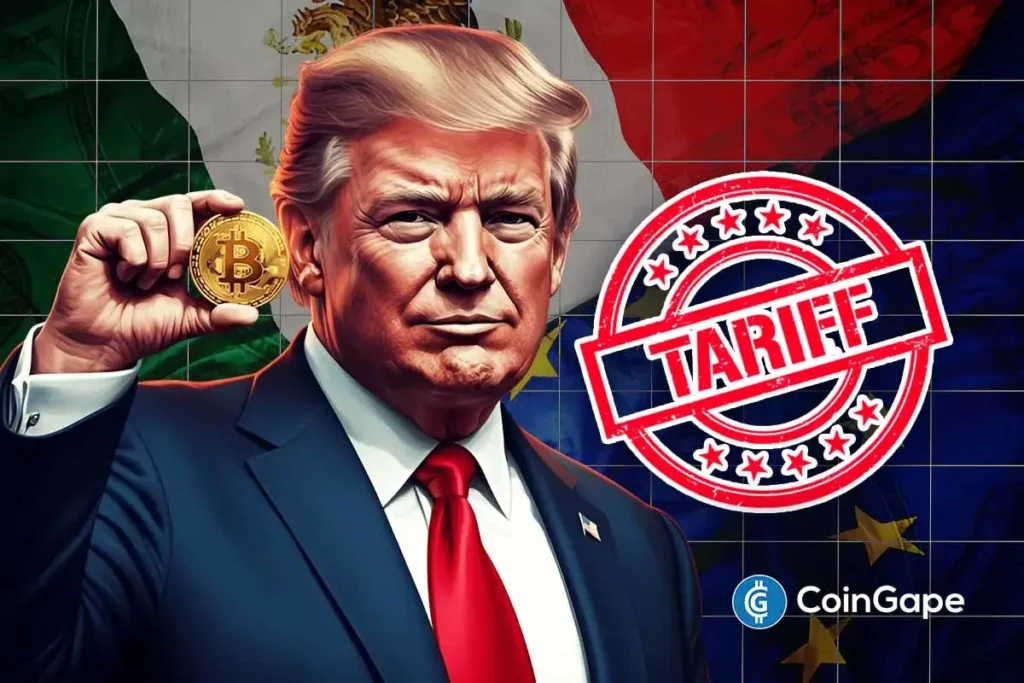Trump Tariffs Affect Bitcoin Price: An Insight into Market Reactions and Trends
The recent announcement of new tariffs by former President Trump has raised concerns about the potential impact on Bitcoin (BTC) prices, which have demonstrated volatility in light of these developments. As tariffs on goods from the European Union (EU) and Mexico are set to be implemented beginning August 1, Bitcoin has experienced a noticeable decline, dropping below $118,000. This article delves into the correlation between trade policies and cryptocurrency market dynamics, providing insights into recent events affecting Bitcoin’s performance.
Impact of Tariffs on Bitcoin Prices
Following Trump’s announcement of a 30% tariff on imports from the EU and Mexico, Bitcoin saw a sharp decline, dropping below $118,000 after reaching a high of $118,200 earlier that day. Market responses to trade policies can often be unpredictable, as negative sentiments tend to circulate based on geopolitical events. The sudden change in trade relations prompted by Trump’s tariff letters possibly signals a new wave of bearish sentiment among investors. The immediate market reaction underscores the intricate relationship between traditional economic policies and the cryptocurrency market.
Previous Tariff Impositions
This isn’t the first instance where Trump has imposed tariffs that have influenced market behavior. On July 7, tariffs were set at 25% for South Korea and Japan, followed by trade letters sent to additional countries with double-digit tariffs. On such occasions, Bitcoin also faced downward pressure, dropping below $108,000. However, in what appears to be a resilient response from the cryptocurrency market, Bitcoin recovered swiftly, eventually surging to a new all-time high (ATH) of over $112,000 just two days later. This fluctuation highlights the market’s tendency to rebound swiftly, even amidst bearish news.
Tariff War Implications for Bitcoin
The impending tariffs raise concerns about a possible trade war, not just between the US and the EU or Mexico but potentially involving other nations as well. Such an escalation could have broader implications for international trade relations and economic stability. If these countries retaliate by raising their tariffs on US goods further, it could create a domino effect, further influencing Bitcoin prices negatively. Investors in cryptocurrency often monitor macroeconomic indicators and geopolitical tensions closely; thus, they may react swiftly to changes in trade policies.
Resilience of Bitcoin in Volatile Markets
Despite the bearish influences of tariff announcements, Bitcoin has shown surprising resilience in the past. Following the July 7 tariff announcements, investors witnessed a rapid recovery, propelling BTC to its current ATH of approximately $118,800. It appears that the digital currency may be increasingly viewed as a safe haven or hedge against traditional market fluctuations, compelling investors to buy despite negative external factors. This characteristic of Bitcoin poses questions about its role in financial ecosystems, especially when global economic policies are in flux.
Future Outlook on Bitcoin Prices Amidst Tariffs
As the market adjusts to the implications of Trump’s tariffs, the future of Bitcoin remains uncertain. Analysts suggest that investors will need to exercise caution and conduct thorough research before making investment decisions. The cryptocurrency landscape can be complex, influenced by economic policies, market sentiment, and investor behavior. Consequently, while the immediate outlook may appear bearish due to the announcement of tariffs, the historical resilience of Bitcoin indicates potential recovery and long-term growth.
Conclusion
The interplay between trade policies and Bitcoin’s market performance is an essential aspect for investors to consider. With the unfolding of tariffs and possible retaliatory measures by various countries, investors should remain informed and prepared for fluctuations in cryptocurrency prices. While immediate reactions to tariffs may present challenges, historical trends indicate that Bitcoin possesses qualities that can serve to stabilize and potentially enhance its value in the long term. As always, investors must prioritize thorough research and market awareness to navigate the complexities of the cryptocurrency world confidently.














